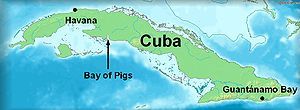Up Date 08:00 EDT: The two suspects have been identified as brothers who have been living legally in the US:
The suspects are Chechen brothers with the last name Tsarnaev, law enforcement officials told NBC News. The suspect at large, Dzhokhar Tsarnaev, is 19, was born in Kyrgyzstan and has a Massachusetts driver’s license, they said. The dead suspect was identified as Tamerlan Tsarnaev, 26, born in Russia.
Tamerlan Tsarnaev was run over by a vehicle during the firefight, law enforcement officials told NBC News. Law enforcement officials also told NBC News that the brothers entered the United States in 2002 or 2003, and that Tamerlan Tsarnaev became a legal permanent resident in 2007. [..]
Law enforcement officials said the tumult began just before 11 p.m., when the suspects approached a police officer from the Massachusetts Institute of Technology and shot him in the head.
The two then stole the officer’s cruiser, robbed a nearby 7-Eleven, carjacked a Mercedes SUV and briefly kidnapped the driver, the sources said. The suspects threw explosives out the window during the chase that followed, they said. A Boston transit police officer was shot and wounded, authorities said.
Up Date 06:05 EDT: From The Guardian:
All public transport has been suspended including buses and subways in the Massachusetts Bay area – Boston and the surrounding areas – it was announced. People at stations were asked to “please go home” and not congregate waiting for the system to come back.
The authorities want the residents of Watertown, Newton, Waltham, Bellamont, Cambridge, and the Austin and Brighton neighbourhoods of Boston to stay indoors for the time being. They are also asking businesses there not to open.
The person who was identified as suspect #1 came into the hospital in “traumatic arrest” and was pronounced dead at 01:35 EDT. He died of multiple gunshot wounds and blast injuries. Suspect #2 is still at large. He is considered armed and extremely dangerous.
Up Date 04:57 EDT: The Guardian is reporting that one of the suspects was shot and killed as per police at a news conference. The other is still at large.
A shooting late last night on the campus of MIT that left a campus police officer dead and a shoot out in Watertown, MA with explosions, may be related to the deadly bombing at the Boston Marathon. The FBI released photos of two suspects in that case.
There are a lot of conflicting reports that about these two incidents and whether or not they are related to each other or the marathon explosions. There is one person in custody but it is unknown if this person one of the suspects.
One suspect apprehended, another remains on the loose
By Wesley Lowery, Akilah Johnson, Eric Moskowitz and Lisa Wangsness, The Boston Globe
WATERTOWN, MA – One suspect in Monday’s Boston Marathon bombings has been captured, according to an official with knowledge of the investigation. Another remains on the loose in Watertown after a firefight with police. Authorities have established a 20-block perimeter as they search for him.
A scene of chaos descended on Cambridge and Watertown late Thursday night and early Friday morning, as police confirmed an MIT police officer was shot and killed, and an apparent carjacking led police on a wild chase into Watertown.
Witnesses in Watertown said they heard explosions. Police officers were screaming about improvised explosive devices.
Authorities would not comment on whether the events were connected to Monday’s Boston Marathon bombings. At least one of the suspects in Watertown appeared to be a man in his 20s.
Here is the live feed from MSNBC. The commentators are being very cautious in their reporting.
Here is the live feed from The Guardian.
Update from Think Progress–
Law enforcement officials believe that one suspect in Monday’s bombing of the Boston Marathon was killed Friday morning after a shootout and car chase with police, while the other is still on the loose. NBC’s Pete Williams reports that the two are brothers, age 19 and 20, and are legal permanent residents of the United States, living in Cambridge. The first suspect was taken into custody by police and was pronounced dead at Beth Israel Hospital at 1:35 AM. As many as nine thousand police officers are now conducting a door-to-door search for the second individual, Dzhokhar Tsarnaev according to NBC, and are asking residents to stay in their homes.
The two robbed a 7/11, killed a Massachusetts Institute of Technology (MIT) campus police officer in his car after 10 PM on Thursday night and later carjacked a Mercedes SUV. Pete Williams of NBC News reports that the suspects told the man that they killed a police officer and were the marathon bombers. The owner of the car was held at gunpoint for 30 minutes and later released near a gas station in Cambridge.
The men then led police on a chase to Watertown, where they exchanged gunfire and threw bombs out of the vehicle window at law enforcement, including one made from a pressure cooker. They stopped the car in Watertown, where the first suspect got out, was shot and likely detonated an improvised explosive device (IED) strapped to his chest. The second suspect drives on and later abandons the car.

 The controversial data sharing bill,
The controversial data sharing bill,  On this day in 1775, British troops march out of Boston on a mission to confiscate the American arsenal at Concord and to capture Patriot leaders Samuel Adams and John Hancock, known to be hiding at Lexington. As the British departed,
On this day in 1775, British troops march out of Boston on a mission to confiscate the American arsenal at Concord and to capture Patriot leaders Samuel Adams and John Hancock, known to be hiding at Lexington. As the British departed, 
Recent Comments